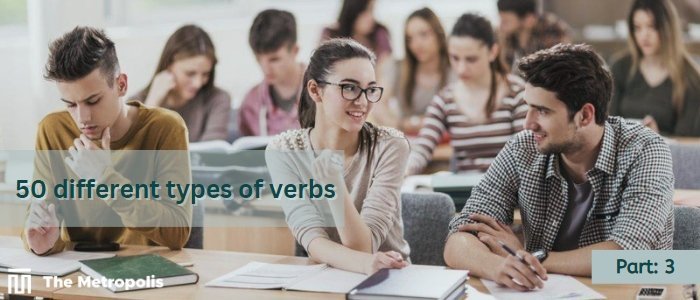Zulfiqar Parvez-
It was back in 2008, and somehow a grammar mania came over me that led me to find many new things I did not know even existed in language. There were even eight nights of insomnia on the trot that resulted in the discovery of over 50 different types of verbs alone. I feel my students should know each of them by turns. I found them in a number of different books on grammar and went all the way to take the trouble to arrange them in alphabetical order so my students could find them in the blink of an eye. Here comes my third write-up on verbs that contains all the verbs beginning with ‘D’, ‘E’ and ‘F’. Keep in touch. The rest will follow.
Defective verb
A verb that cannot be used in all the forms that a normal verb can usually be used in. The term is used primarily to refer to modals because they do not have past tense and past participle forms. The defective verbs are: can, may, could, might, must, ought, shall, and will. The modal verbs “ought” and “must” lack both a unique past tense and a unique past participle form.
You may go there.
They should come here.
You must give it a try.
Di-transitive verb
A verb that takes two objects after it, one indirect object which is in the dative case, and one direct object which is in the accusative case. Some of the most commonly used di-transitive verbs are: give, bring, lend, send, tell, buy, show, and pass.
He gave me a hug.
She brought me a drink.
I lent him some money.
Father bought me a computer.
My wife sent me a letter.
The indirect object of a di-transitive verb usually denotes the receiver of something. It is also called a two-object verb.
Dynamic verb
A verb that expresses an activity or process and can be used in any aspect of any tense.
Jane is walking on the street.
She has taken a long walk.
They will now come home.
A dynamic verb is also called an active verb.
Ergative Verb
A verb which can be used both transitively and intransitively in the same sense. For example:
She boiled the water. (transitive)
The water boiled. (intransitive)
The boys are flying kites. (transitive)
Kites are flying. (intransitive)
Factitive verb
A verb of calling, choosing, naming, or thinking that takes both a direct object and a complement. The complement is usually a predicative adjective or an object in the factitive case. Typical factitive verbs are elect, make, call, name, appoint, and choose. e.g.
The Americans elected Trump president.
We made him captain.
I called him a fool.
We named our son Muhammad.
We appointed Jane our representative.
This is basically a kind of complex transitive verb.
Factive verb
A verb that takes a complement in the form of a clause wherein the meaning of the verb implies that the speaker believes that what is stated in the clause is a fact. Typical factive verbs are: know, agree, realize, regret, deplore, and remember.
I know you love me.
I regret that he has managed to escape.
I finally realized she had played me false.
Finite verb/ Predicator
A verb used in a form that exhibits number, tense, aspect, and so on; the form of the verb that can take an inflection. The use of a finite verb is limited to a particular subject, tense, aspect, and so on. Definitions of finite verbs often include “restrictions” or “limitations” as a way of incorporating the notion of “finiteness”. Finite verbs are simply verbs behaving as verbs. e.g.
I am a teacher.
He teaches English.
We ran ever so fast.
The curtain lifted slowly.
They have done the work.
In the last sentence, the finite verb is complex. It is a finite verb phrase. Finite verbs have five different forms:
1) Present Simple form
Dogs bark.
The dog barks.
2) Past Simple form
She chuckled.
We laughed our hearts out.
3) Modal form
He can speak French.
4) Auxiliary plus Present participle form
The baby is/was crying.
It had been raining since yesterday.
5) Auxiliary plus Past participle form
You/he/ have/has done the work.
The thief had been punished.
We see that the key function of finite verb is to express time/tense.
Full/Principal/Main/Lexical verb
A verb which has a meaning of its own and can be used as the only verb in a sentence or clause. e.g.
He is writing a letter now.
He writes two letters a week.
I shall see you tomorrow.
I read twelve hours a day.
A full verb is also the last verb in a verb phrase. e.g.
I have watched the movie.
You should have talked to me.
A full verb is a content word and not a function word. However, the same verb can be used as a full verb or an auxiliary verb.
He has many books. (full verb)
He has read many books. (a+l= verb phrase)
Function verb
An auxiliary verb used without its lexical counterpart when the lexical part can occur in ellipsis. It is possible only when the omitted lexical verb has occurred before. e.g.
“Have you done the work?”
” Yes, I have (done).”
A function verb is used usually in answering a verbal question that should be answered only with three words.
I will do it if I must (do it).
Zulfiqar Parvez is Head of English at Tanzimul Ummah International Tahfiz School.



